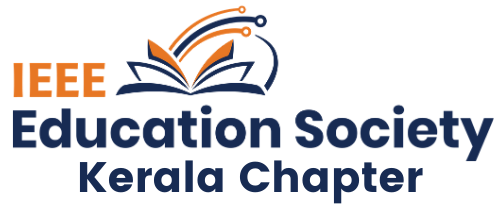Publications under IEEE Education Society Kerala Chapter
Enhancing Electronics Education through Augmented Reality and Automated Circuit Verification: A Comprehensive Workflow Design
Abstract
This study introduces an innovative workflow that integrates augmented reality (AR) with automated circuit verification to enhance electronics education. By enabling students to interact with virtual elements overlaid on real components, the system bridges theoretical and practical learning while providing real-time error feedback. Supporting both exam and project-based learning, the workflow fosters deeper understanding, iterative improvement, and greater engagement, demonstrating its potential to transform electronics lab courses and inspire future applications in engineering education.
Authors
Aswin A
S M Anzar
N P Subheesh
Aby John
Engineering Students’ Attitudes and Perceptions towards Project-Based Learning: A Study from Kerala, Southern India
Abstract
This study investigates engineering students' perceptions of Project-Based Learning (PjBL) in Kerala, highlighting its potential to enhance learning outcomes, critical skills, and real-world readiness. While students view PjBL positively, only 11% believe their current campus supports its implementation, emphasizing the need for improved academic infrastructure and institutional alignment. The findings underscore PjBL's role in advancing NEP 2020 goals and recommend phased integration and teacher training to address implementation challenges.
Authors
Akshay R S
Alviya Sunny
Saranya V S
Dr Aby John
Dr N P Subheesh
Dr S M Anzar
Engineering Educators’ Adoption and implementation of Project-Based Learning: Experiences from a South Indian University
Abstract
This study examines the attitudes and readiness of engineering educators in Kerala, India, towards adopting Project-Based Learning (PjBL) under APJ Abdul Kalam Technological University (APJAKTU). Survey findings reveal that over 90% of faculty express strong interest in PjBL, recognizing its potential effectiveness despite challenges like time constraints. The insights highlight a significant shift towards experiential learning in engineering education, emphasizing the need for effective PjBL integration.
Authors
Anjal P Dijo
Anantha Krishnan K. P.
N. P. Subheesh
Aby John
S M Anzar
Sajin Sachidananthan
Gender Differences in School Students' Perceptions Towards Engineering: A Case Study From Rural South India
Abstract
Gender stereotypes persist in higher education, notably in engineering. This study examines attitudes among 220 students in Kerala's Rural Students' Technology Enhancement Program. Interestingly, 62.5% of females express interest in engineering, compared to 86% of males. Recommendations are provided to address gender-specific attitudes towards engineering among rural students.
Authors
N P Subheesh
Ayisha E A
Akash Vijay
Sarath S
Akshay R S
Yadhukrishna K
Rural School Students’ Attitudes and Perceptions toward the Engineering Education and the Engineering Profession
Abstract
This study examines rural Kerala students' attitudes toward engineering through the R-STEP program by IEEE. Of 225 respondents, 60% aspire to be engineers, 50% prioritize problem-solving, and 80% value practical learning. However, confusion exists about the role of mathematics. Recommendations aim to enhance engineering awareness.
Authors
N P Subheesh
Ayisha E A
Akash Vijay
Sarath S
Parvathy I
An explorative case study on effects of a makeathon for SDGs on middle school students learning and democratic empowerment
Abstract
This paper explores the STEAM for Social Good Makeathon, a program in India empowering middle schoolers. Guided by IEEE's STEM principles, students learned problem-solving, IoT prototyping, and app development. Results indicate improved competence in physical computing and app dev, with innovative prototypes tackling sustainability challenges.
Authors
Gayathri Manikutty
Ayisha E A
Pranav Prabha
Mahesh S Unnithan
Sreejith Sasidharan
